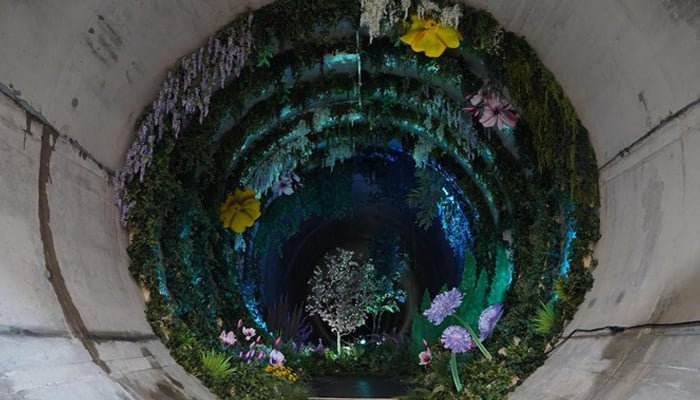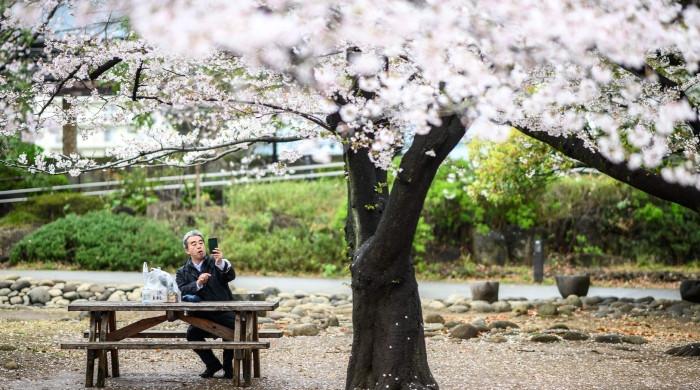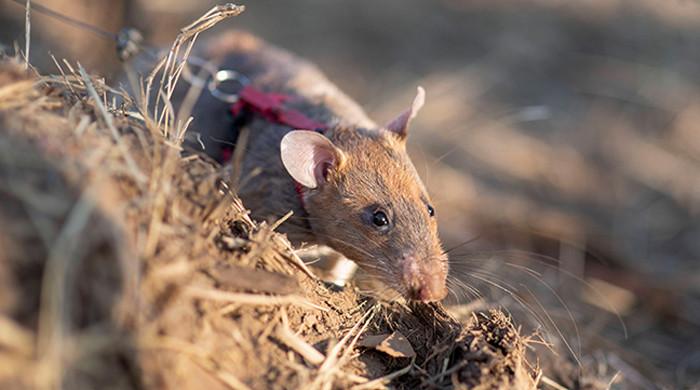Tunnel turned into Loo Garden by UK company to save River Thames
Loo Garden has been set up to show picture of positive environmental impact it will have in future when it will open
July 02, 2023

As massive industrialisation, climate change and the emanating pollution have caused harm to human's natural habitat, also posing a threat to other species, steps are being taken to assuage those adverse effects with a number of initiatives to preserve the endangered environment.
One such initiative was reported from the United Kingdom as a company named Tideaway has transformed Thames Tideway Tunnel also called "London's Super Sewer" into the Loo Garden, 50m under the streets of the British capital.
It has been turned into a multi-coloured garden.
According to BBC, darkness and the challenge of watering meant rented artificial plants were used, as well as repurposed waste materials found along the Thames.
The Loo Garden has been set up to show a picture of the positive environmental impact it will have in the future when it will be opened.
For several decades, London's Victorian-era sewers have provided a way to raw sewage into the River Thames after heavy rains.
"The new sewer aims to prevent 95% of sewage spills and is due to be fully operational in 2025, after some additional construction and testing works," according to Tideway.
Tideway said: "The ecological benefits will be significant for the hundreds of species of fish, birds, mammals and riverside flora that call the Thames home."
The tunnel will be closed after three weeks until then the garden will be in its place as the company is planning to launch testing next year.
"Loo Gardens promises an awe-inspiring spectacle, offering a truly memorable and immersive experience that touches all the senses, including a bespoke soundscape and the aroma of grasses and wetlands," said Tideway.
"Tideway is also giving some lucky members of the public a once-in-a-lifetime opportunity to visit the super sewer and head 50 metres under the city to explore the underground garden, and see the scale of this vital infrastructure up close."











